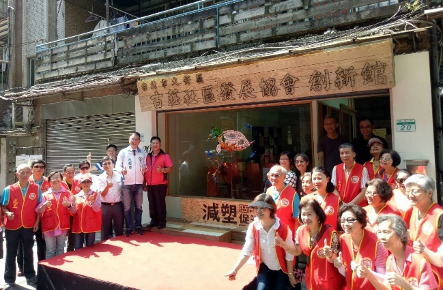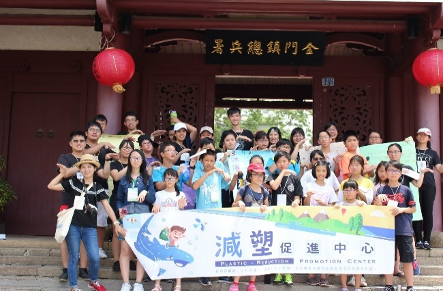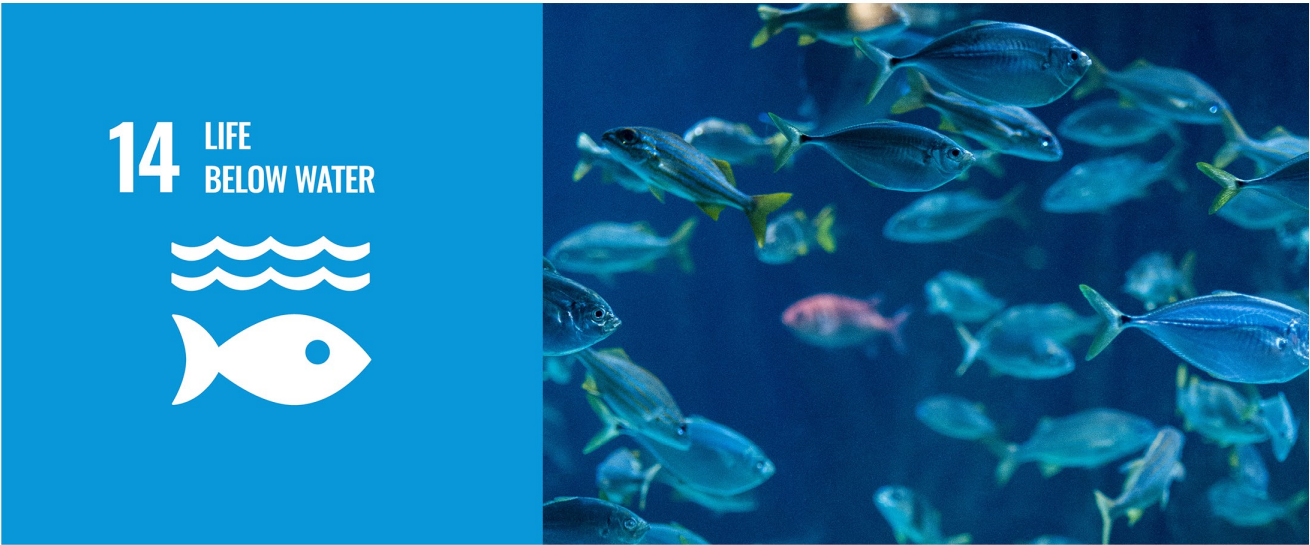
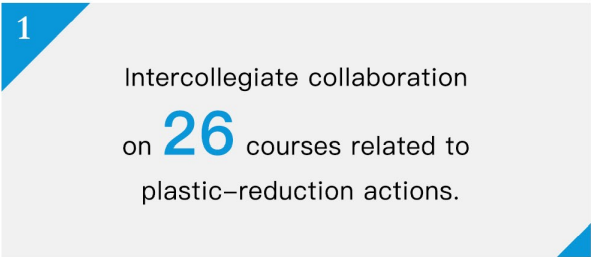
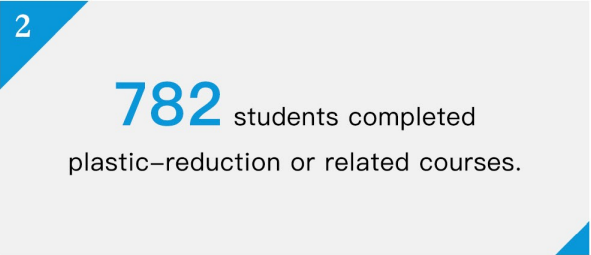
14.1 Spirit of the SDG and the University’s Philosophy
The world’s oceans have always been an important channel for trade and transportation, and the maintenance and management of global marine resources are crucial to building a sustainable future. However, due to marine pollution and acidification, coastal waters are gradually deteriorating, which is adversely affecting the functioning of ecosystems and biodiversity, as well as having a negative impact on small-scale fisheries. Being able to profit from marine resources (including animals and plants) leads to their development so that living conditions can be improved. Sustainable development involves meeting current needs without harming the needs of future generations. Protected marine areas need to be effectively managed and have sufficient resources, while relevant laws and regulations need to be established to reduce overfishing, ocean pollution, and ocean acidification.
One of the important missions of the University is running underwater-life projects. Curriculum design, action plans, and research and development are important for achieving sustainable development and marine conservation. In terms of overall institution management, the NTNU Committee for Sustainable Development was established. Promoting campus plastic-reduction activities includes reducing the use of disposable plastic products and practicing a cyclical and sustainable campus life, thereby reducing marine pollution. In terms of community participation and advocacy, the University established the Community Plastic Reduction Promotion Center that provides formal courses, informal courses, and planning and design services plus activities for inclusion in potential courses, and combined with the University’s surrounding communities, the business district of NTNU, interschool cooperation, and collaborations with related industries jointly addresses the core issues of life reduction, sustainable use of marine resources, and active conservation of the oceans. In terms of its academic contributions, the University is carrying out research projects involving cooperation between industry, the government, and university research, and undertaking commissions and receiving subsidies from the Ministry of Science and Technology, the Ministry of Education, and technology companies. The Department of Geography combined with the University’s specialized teachers in atmospheric sciences, geology, geophysics, astronomy, and marine sciences to cultivate marine environmental science and technology research talent with integrated and integrated capabilities, and implemented monitoring of aquatic ecosystems. Research on related topics such as precipitation systems, marine life, marine terrain dynamics, and evolution help to promote the development of Taiwan’s underwater-life-related cognition and practice.
14.2 Achievements
Establishing institution-level units and community plastic-reduction organizations to jointly advocate for plastic reduction
The NTNU Committee for Sustainable Development coordinates the promotion and exploration of various sustainable-development-related issues. One proposal at the “17th Academic and Administrative Directors Joint Conference” on June 23, 2020 was the “Campus Plastic Reduction Protocol.” Meetings between various units on campus and the office administration have led to suggestions and regulations for reducing the use of plastic products on campus, in particular disposable plastic products. The Community Plastic Reduction Promotion Center provides formal courses, informal courses, and planning and design services plus activities for inclusion in potential courses, and combines with the University’s surrounding communities, the business district of NTNU, interschool, and collaborations with related industries to jointly address the core issues of life reduction, sustainable use of marine resources, and active conservation of the oceans.
Enhancing the marine conservation literacy of teachers, students, and the general public through the design and practice of curriculums
The University established an interschool plastic-reduction teacher community based on formal curriculum planning and design to integrate and advocate the SDGs for underwater life, and designing practical activities for environmental plastic reduction. There were 26 courses related to plastic reduction established, with 782 students attending. In addition, the University has adopted various types of plastic-reduction action plans to enhance interactions between teachers and students, industry professionals, and community residents, and actually lead students into performing plastic-reduction actions, and attempting to use multiple plastic-reduction promotion actions to continue to awaken the concern of the general public about the environment and increase the attention paid to practices so as to improve the overall ecological environment. The action categories include plastic-reduction activities, workshops, camps, lectures and exhibitions, market stalls, concept promotions, visits, and work competitions, which attracted almost 6,422 faculty, other staff, and community members to participate in the grand event.
Cooperative the government, academic units, and the industry through research projects
The University accepts commissions and subsidies from the Ministry of Science and Technology, the Ministry of Education, and technology companies to implement improvements to water-resource sustainability and marine-conservation plans in the water source protection areas. Research is carried out on biologically active substances in deep ocean waters, and in related fields and topics such as the marine lithosphere, Pacific Ocean and Kuroshio, shore-based currents, submarine earthquakes, topographical dynamics, and the evolution of coastal sand dunes. Other research includes related issues such as the formation mechanism and predictability of Taiwan’s heavy-rain precipitation system, and on hydrological characteristics, interactions, and issues related to the hydrological cycle of the alpine hydrogeological environment. Both research and development are performed on key technologies for an artificial intelligence system for underwater unmanned vehicles, involving 19 projects such as the impact of multiple-timescale circulation disturbances on the daytime and nighttime precipitation characteristics of Taiwan and neighboring countries, and updating the web-page architecture of the Deji Reservoir water-level prediction system. More than NT$ 2 million was received to support the academic influence of university research institutions and promote the development of understanding and practices related to underwater life in Taiwan.
14.3 Featured Highlights
14.3.1 Implementation results and highlights of the Community Plastic Reduction Promotion Center
In response to the “University Social Responsibility Practice Program” promoted by the Ministry of Education, the University linked the resources of universities, communities, and nonprofit organizations to establish the Community Plastic Reduction Promotion Center with the core purpose of reducing plastic usage. In 2018 it was inaugurated and opened in the ancient village of NTNU, becoming the leader of domestic community plastic-reduction initiatives, combining formal courses, informal courses, and planning and design services plus activities for inclusion in potential courses to promote community plastic-reduction initiatives, such as the “Plastic Reduction Market” and the “Le Cup Map” combined with the environmental protection stores of the NTNU business district. The center also organizes plastic-reduction maker summer camps at schools of all levels, jointly promotes plastic-reduction activities in schools and communities through courses and action plans, and trains teachers, students, and the general public about marine environmental conservation literacy.
Related Media Coverage
[NTNU News] Plastic Reduction Promotion Center had their grand opening and unveiling ceremony, with the University and social enterprise moving hand in hand
[NTNU News] Leaving a plastic-free ocean, three schools from Jinshan Shazhu Bay participated in beach cleanup
[NTNU News] Plastic Reduction Maker Summer Camp in Kinmen opens our “environmental protection era”
[NTNU News] Environmental Ambassadors in Plastic Reduction Promotion Center held the 3rd Golden Plastic Award
